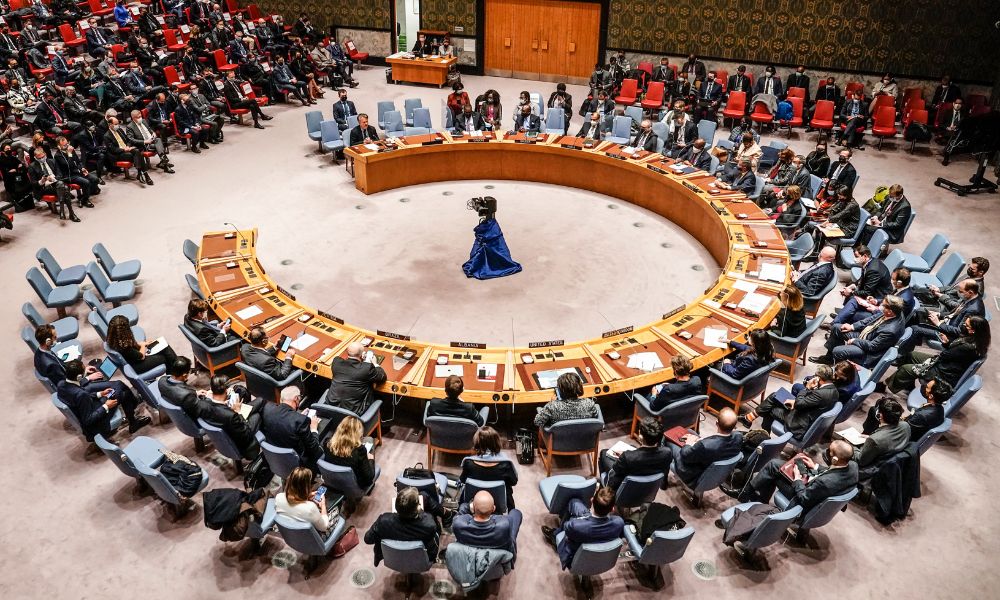
The United Nations Security Council (UNSC), as one of the principal organs of the United Nations, plays a pivotal role in maintaining international peace and security. One of the primary tools at its disposal to fulfill this mission is the issuance of resolutions. These resolutions are formal decisions that express the will of the Council regarding a specific issue or crisis. In this blog, we will delve into the primary objectives of UN Security Council resolutions and explore their significance in the context of global peace and security.
| Are you a Tax Lawyer in USA? 👉Transform Your Brand: Click for Metamorphosis👈 |
One of the central objectives of UNSC resolutions is to address conflicts and crises around the world. When conflicts arise, the Council deliberates and formulates resolutions aimed at achieving a peaceful resolution. These resolutions often call for ceasefires, negotiations, and peacekeeping missions to prevent further violence and facilitate dialogue between conflicting parties.
The core mission of the UNSC is to maintain international peace and security. UNSC resolutions are instrumental in achieving this objective by establishing measures to prevent or mitigate threats to peace. This can involve sanctions, arms embargoes, or the authorization of military interventions when peaceful means fail.
UNSC resolutions frequently emphasize the protection of civilians, particularly in conflict zones. They call on parties to the conflict to respect humanitarian law, ensure the safety of civilians, and allow unhindered access for humanitarian aid organizations. Protecting civilians from violence and human rights abuses is a fundamental aspect of these resolutions.
UN Security Council resolutions often authorize the deployment of UN peacekeeping missions to conflict areas. These missions are tasked with a range of responsibilities, including monitoring ceasefires, protecting civilians, and facilitating the political and peace processes. Resolutions provide the legal basis for these missions and outline their mandates.
The UNSC addresses issues related to non-proliferation of nuclear, chemical, and biological weapons through its resolutions. These resolutions aim to prevent the spread of such weapons and ensure that states adhere to disarmament agreements. For example, Resolution 1540 focuses on preventing the proliferation of weapons of mass destruction.
In situations of conflict or crisis, the UNSC often calls for the delivery of humanitarian assistance to those in need. Resolutions may establish safe humanitarian corridors, demand unhindered access for aid organizations, and emphasize the importance of providing food, shelter, and medical care to affected populations.
The UNSC plays a diplomatic role in preventing conflicts from escalating. Resolutions can endorse diplomatic initiatives, peace talks, and negotiations between conflicting parties. They provide a framework for peaceful dialogue and conflict prevention efforts.
UNSC resolutions reinforce the importance of upholding international law and norms. They condemn violations of international law, including war crimes, crimes against humanity, and genocide. By doing so, they contribute to the accountability of individuals and entities responsible for such violations.
Resolutions often call for regional and international cooperation in addressing security challenges. They encourage states to work together, share intelligence, and take collective action to combat threats to peace and security.
UN Security Council resolutions are powerful instruments that serve multiple objectives in the pursuit of global peace and security. They provide a framework for addressing conflicts, protecting civilians, preventing the proliferation of weapons, and upholding international law. These resolutions underscore the importance of diplomacy, cooperation, and the international community's collective responsibility in maintaining peace and security. While they may not always lead to immediate solutions, they play a critical role in shaping the international response to crises and conflicts, reaffirming the commitment of the United Nations to the principles of peace, security, and human rights.